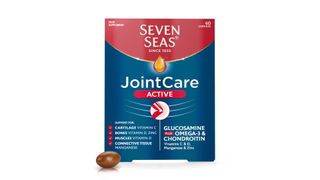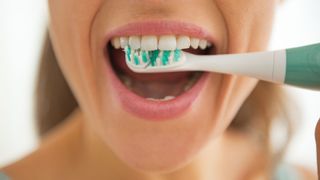4 reasons why you need more vitamin D in your weekly routine
These are the reasons why you should incorporate more vitamin D into your diet

While vitamin D is present in some foods and we can get it from the sun during certain months of the year, not everyone knows why it’s so important for our health.
From school age to adulthood, we’re often told that we need to follow a balanced diet and make sure that we get enough vitamins and minerals to help ward off illness and maintain overall health. One of the top ones on the list is always vitamin D, but as so much focus tends to be around others like vitamin C, which is easily accessible in the food we eat, it’s one that often gets forgotten about.
So why is vitamin D so essential? Here’s why you need more of it in your weekly routine.
1. Vitamin D is found in a small number of foods
Red meat, oily fish, liver, and egg yolks all contain some vitamin D. However, along with not being suitable for the one billion-plus vegetarian and vegan people around the world, not all these foods are consumed every day.
Vitamin D comes from other natural sources too - like the sun. When it’s sunny outside, energy from the rays turns a chemical in our skin into vitamin D3. This is then carried into the liver and the kidneys transform it into active vitamin D, which is when we start to reap the health benefits. However, as well as needing decent levels of sunshine to achieve this (something we don’t really have in the UK), without proper protection it’s not always safe to spend hours in direct sunlight.
A more consistent way of getting enough vitamin D is through supplements like Seven Seas JointCare Supplex & Turmeric. It is specifically formulated with vitamin C and manganese, two other essential nutrients, as well as Vitamin D to help support an active lifestyle (1). All Seven Seas JointCare products also contain Omega-3, which helps support your heart (2), brain (3) and eyes (3).

2. To support bones and muscles
It’s the most well-known health benefit of vitamin D for a reason. “As we age, our body is slower to react or to repair itself. Cheerful thought I know!” says personal trainer and w&h health columnist Annie Deadman. “When our estrogen levels drop our bones and muscles are more vulnerable and at risk of losing their density and their strength, you might consider strength-training and vitamin D as part of your plan. Vitamin D supports the absorption of calcium and phosphate in the body to support bones and muscles.”
3. It supports your immune system
As well as helping to support daily health and wellbeing, research has shown that vitamin D helps support the normal function of your immune system.
The immune system is the body’s first line of defence against infection. When the body recognises that foreign substances - like harmful bacteria and viruses - have found their way in, the immune system locates them and gets rid of them. It does this through specific white blood cells, which help make antibodies which lock onto specific antigens and help remove microbes.

4. It supports the maintenance of normal teeth
We know that vitamin D supports the absorption of calcium, helping our bones and muscles to function properly. But that benefit also extends to other bones in the body - including those in the mouth.
Because vitamin D helps the body to absorb and retain calcium and phosphorous in the body, alongside regular oral care like brushing and regular dental check ups, it helps the maintenance of normal teeth.
(1) Seven Seas JointCare Supplements contain: Vitamin D which supports normal functioning muscles and normal bones. Vitamin C for the normal formation of collagen for the normal function of cartilage. Manganese for the normal formation of connective tissues or Copper contributes to maintenance of normal connective tissues.
(2) A daily intake of 250mg EPA (Eicosapentaenoic Acid) and DHA (Docosahexaenoic Acid) helps support normal heart function.
(3) 250mg DHA daily helps support normal vision and brain function.
Food supplements must not replace a varied, balanced diet and a healthy lifestyle.
Sign up for the woman&home newsletter
Sign up to our free daily email for the latest royal and entertainment news, interesting opinion, expert advice on styling and beauty trends, and no-nonsense guides to the health and wellness questions you want answered.
-
 Recent weeks 'precious' for Kate Middleton with 'country walks and snuggles in front of the TV' with George, Charlotte and Louis
Recent weeks 'precious' for Kate Middleton with 'country walks and snuggles in front of the TV' with George, Charlotte and LouisThe Prince and Princess of Wales have been able to relish in precious family time over the Easter break, according to a royal expert
By Caitlin Elliott Published
-
 I put the EcoAir DC12 MK3 dehumidifier to the test – and found it's perfect for bedrooms
I put the EcoAir DC12 MK3 dehumidifier to the test – and found it's perfect for bedroomsThis quiet dehumidifier punches above its weight when it comes to performance and usability, and won't break the bank.
By Amy Cutmore Published